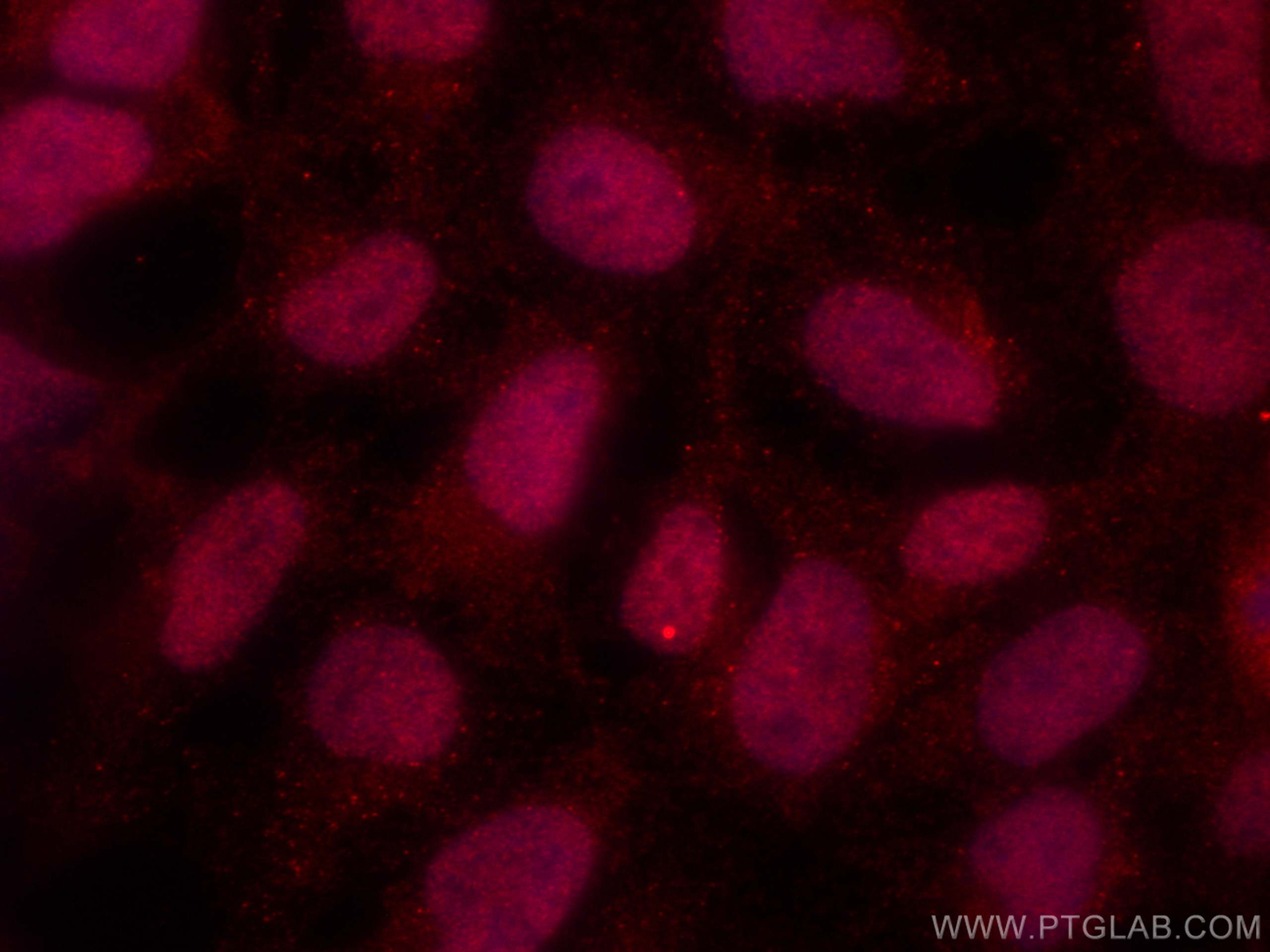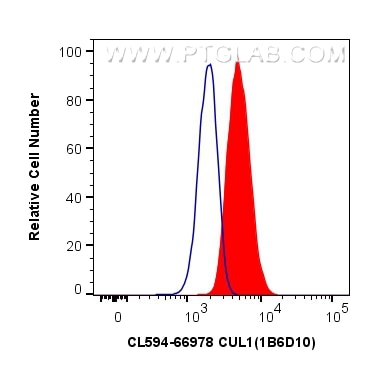Anticorps Monoclonal anti-CUL1
CUL1 Monoclonal Antibody for FC (Intra), IF
Hôte / Isotype
Mouse / IgG2b
Réactivité testée
Humain, rat, souris
Applications
IF, FC (Intra)
Conjugaison
CoraLite®594 Fluorescent Dye
CloneNo.
1B6D10
N° de cat : CL594-66978
Synonymes
Galerie de données de validation
Applications testées
| Résultats positifs en IF | cellules HEK-293, |
| Résultats positifs en cytométrie | cellules HEK-293 |
Dilution recommandée
| Application | Dilution |
|---|---|
| Immunofluorescence (IF) | IF : 1:50-1:500 |
| Flow Cytometry (FC) | FC : 0.40 ug per 10^6 cells in a 100 µl suspension |
| It is recommended that this reagent should be titrated in each testing system to obtain optimal results. | |
| Sample-dependent, check data in validation data gallery | |
Informations sur le produit
CL594-66978 cible CUL1 dans les applications de IF, FC (Intra) et montre une réactivité avec des échantillons Humain, rat, souris
| Réactivité | Humain, rat, souris |
| Hôte / Isotype | Mouse / IgG2b |
| Clonalité | Monoclonal |
| Type | Anticorps |
| Immunogène | CUL1 Protéine recombinante Ag28399 |
| Nom complet | cullin 1 |
| Masse moléculaire calculée | 90 kDa |
| Poids moléculaire observé | 85 kDa |
| Numéro d’acquisition GenBank | BC034318 |
| Symbole du gène | CUL1 |
| Identification du gène (NCBI) | 8454 |
| Conjugaison | CoraLite®594 Fluorescent Dye |
| Excitation/Emission maxima wavelengths | 588 nm / 604 nm |
| Forme | Liquide |
| Méthode de purification | Purification par protéine A |
| Tampon de stockage | PBS avec glycérol à 50 %, Proclin300 à 0,05 % et BSA à 0,5 %, pH 7,3. |
| Conditions de stockage | Stocker à -20 °C. Éviter toute exposition à la lumière. Stable pendant un an après l'expédition. L'aliquotage n'est pas nécessaire pour le stockage à -20oC Les 20ul contiennent 0,1% de BSA. |
Informations générales
The cullin family proteins are scaffold proteins for the Ring finger type E3 ligases. Humans express seven cullin proeins: CUL1-3, CUL4A, CUL4B, CUL5, and CUL7. Each cullin protein can form an E3 ligase similar to the prototype Ring-type E3 ligase Skp1-CUL1-F-box complex. The Cullin-RING-finger type E3 ligases are important regulators in early embryonic development, as highlighted by genetic studies demonstrating that knock-out of CUL1, CUL3, or CUL4A in mice results in early embryonic lethality.
Protocole
| Product Specific Protocols | |
|---|---|
| IF protocol for CL594 CUL1 antibody CL594-66978 | Download protocol |
| FC protocol for CL594 CUL1 antibody CL594-66978 | Download protocol |
| Standard Protocols | |
|---|---|
| Click here to view our Standard Protocols |



